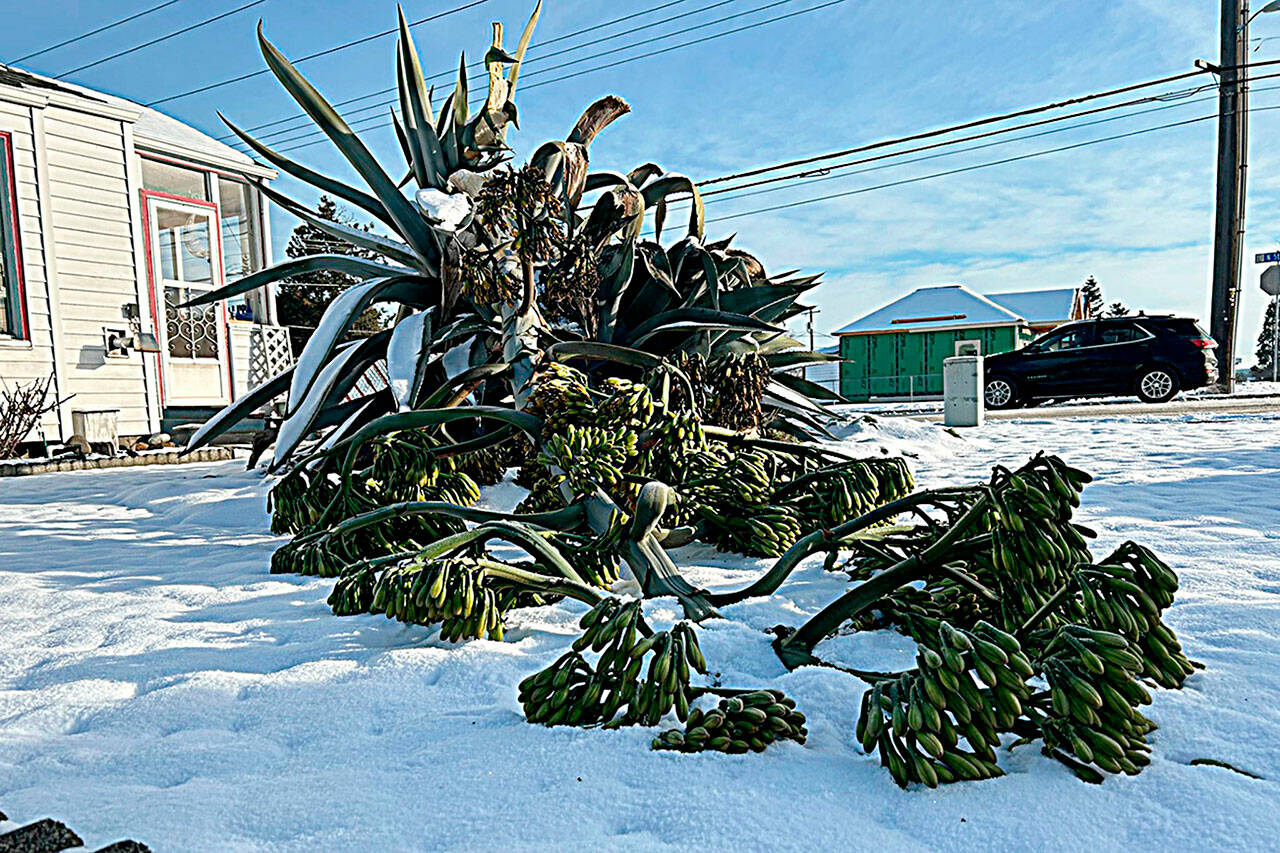After 28 years and growing up to 22 feet tall along North Fifth Avenue, the agave plant at Isobel Johnston’s home appears to have succumbed to Sequim’s recent cold spell.
Johnston, 95, said she was talking on the phone with her daughter on Sunday, Jan. 14, when she noticed the plant was starting to lean.
“When I woke up (on Monday) and opened the blinds, it was on the ground,” she said.
Johnston and her late husband William retired to Sequim in 1991 and bought the Agave Americana, then the size of a baseball, at a garage sale for $1 in the mid-1990s.
It remained on their porch for years before they moved it to the center of a cement block circle in front of their house where it started to take off, according to Johnston.
The plant is known for growing in warmer, drier areas and not the cold, rainy Pacific Northwest, which made Johnston’s agave unique for Sequim. It has endured cold weather before including last winter where some leaves were damaged, but the recent cold weather going down to single digits might have been the coldest she and the plant has felt in Sequim, Johnston said.
“Of course, I’m sad. It’s been a part of my yard for so long,” she said. “I knew it was gonna fall. I just didn’t know when.”
In a previous interview, Johnston said she wanted to see it grow a stalk and bloom before she passed away.
Agave Americana succulents can take decades to bloom, and when they do, a stalk up to 30 feet can grow with branches over several months. Johnston’s plant began to grow its towering stalk in the summer. After Agave Americana plants bloom and go to seed, the plant dies.
Despite it toppling over, Johnston and Clallam County Fire District 3 representatives, who own the property, said they’re committed to keeping at least one of the agave babies underneath the original plant once it’s removed.



